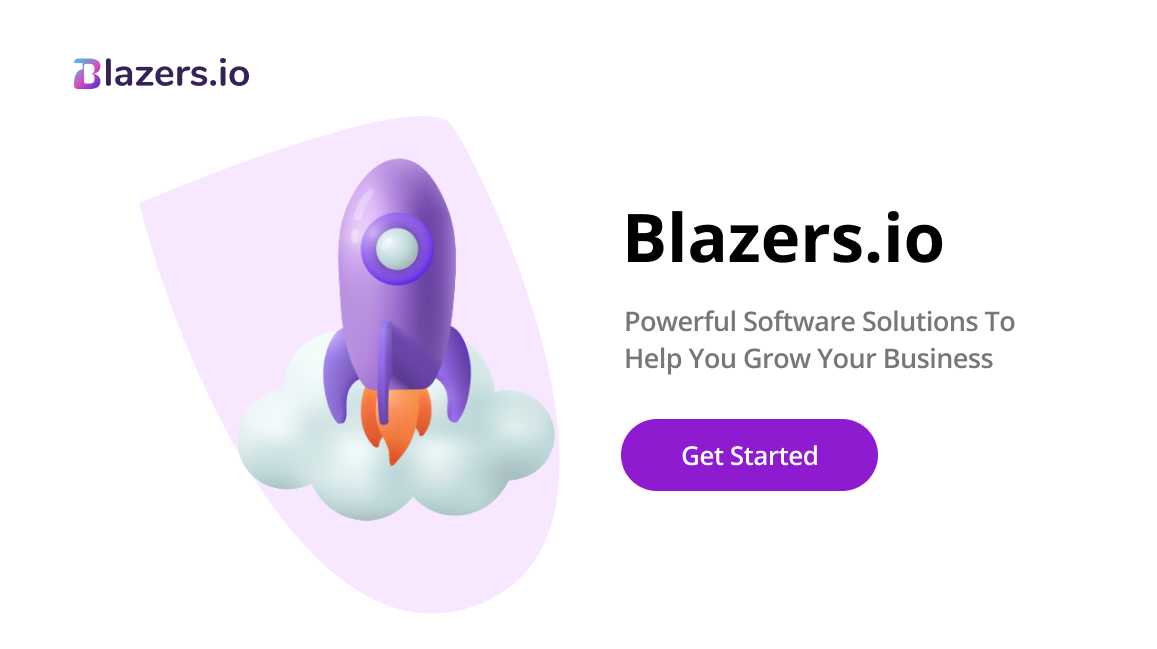Published at business by Sael

6 Top B2B Ecommerce Websites Tailored to Small Businesses
Published at business by Sael
Online shopping is the latest trend. Especially after pandemic, the rise of online shopping is on the higher side.
As Indians go vocal for local, 96% of consumers expressed their desire to shop from Indian brands this festive season, driving e-commerce growth.
So, it is important to understand the trend and adapt them at the earliest for your small businesses. This will lead to the question of what are the top B2B ecommerce websites that will help small businesses. Let us analyse the top 6 B2B ecommerce websites that are tailored for small businesses.
Table of Contents:
- What are business-to-business (B2B) ecommerce websites?
- B2B ecommerce websites vs. business-to-consumer (B2C) websites
- Six popular B2B ecommerce websites
- Shopify Plus
- Alibaba
- WooCommerce
- Adobe Commerce
- Amazon Business
- Opencart
- Conclusion
- What are business-to-business (B2B) ecommerce websites?
B2B ecommerce websites are online platforms that enable businesses to buy and sell goods and services with each other. Unlike consumer platforms, B2B ecommerce focuses on the unique requirements of businesses, allowing for transactions in larger quantities and negotiated deals.
These b2b ecommerce websites provide a digital marketplace for companies to purchase raw materials, components, finished products, or services in bulk, offering a simplified and effective way to conduct business online. B2B platforms often include personalized pricing, secure payment options, and tools for automating order processes, enhancing the efficiency of business operations.
2. B2B ecommerce websites vs. business-to-consumer (B2C) websites:
B2B and B2C ecommerce websites serve different audiences and possess unique qualities:
- Intended Audience:
B2B Ecommerce caters to businesses and emphasizes wholesale transactions. The primary customers are other businesses, retailers, or industrial entities seeking to purchase goods or services in large quantities for operational purposes.
B2C Ecommerce focuses on reaching individual consumers for retail transactions. The primary objective is to sell products or services to end-users directly.
- The volume of Purchase:
B2B Ecommerce revolves around bulk purchasing, where transactions typically involve large quantities of products or services to fulfill the operational needs of the buying business.
B2C Ecommerce usually consists of smaller quantities suitable for individual consumers or households.
- Type of Transactions:
B2B Ecommerce: Transactions can be more involved, requiring negotiation, long-term contracts, and personalized pricing based on factors such as order volume and specific business needs.
B2C Ecommerce: Transactions are typically straightforward, featuring set prices and a strong emphasis on catering to individual consumer preferences.
- Product Simplicity:
B2B Ecommerce: Involves products that are not always straightforward, such as raw materials or specialized industrial components, which businesses require for their manufacturing or operations.
B2C Ecommerce focuses on various consumer goods, from everyday items to luxury products.
- Approach to Marketing and Sales:
B2B Ecommerce: Focuses on marketing to businesses, highlighting the efficiency, cost-effectiveness, and reliability of products or services for their operations.
B2C Ecommerce: Emphasizes consumer-oriented marketing, focusing on branding, convenience, and individual preferences.
- The process for making decisions:
B2B Ecommerce usually entails a longer decision-making process, often involving the need for approvals from various stakeholders within the buying business.
B2C Ecommerce: Decision-making tends to be faster and is influenced by the choices and preferences of individual consumers.
- Building and maintaining strong customer relationships:
B2B Ecommerce: Requires establishing and upkeep of enduring partnerships, as business transactions are continuous and can extend over several years.
B2C Ecommerce: Building customer loyalty is dependent on providing positive shopping experiences through transaction-based relationships.
To summarize, B2B ecommerce is designed for businesses involved in wholesale transactions, prioritizing efficiency, negotiation, and meeting operational needs.
In contrast, B2C ecommerce is created explicitly for direct retail transactions with individual consumers, emphasizing simplicity, branding, and personalized shopping experiences.
3. Six popular B2B ecommerce websites:
Explore the business-to-business (B2B) ecommerce website with a closer look at six popular platforms. These websites are crucial in connecting businesses for seamless procurement and trade, from facilitating bulk transactions to offering customized pricing.
Learn about the unique features and advantages that set each of these B2B ecommerce website platforms apart in the ever-changing world of online business transactions.
3.1. Shopify Plus:
Shopify Plus is a specialized B2B eCommerce platform provided by Shopify, a highly recognized B2B eCommerce website platform with a vast user base of over 1 million eCommerce websites.
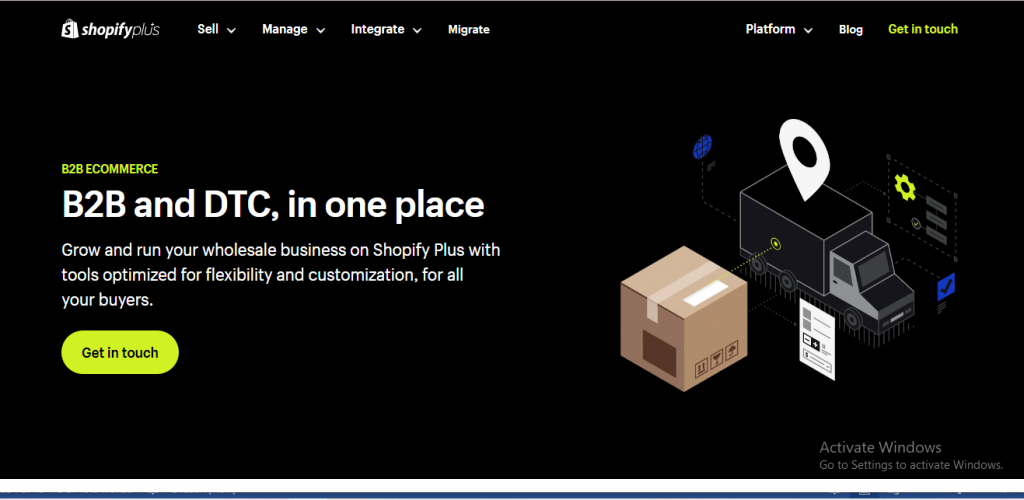
Shopify Plus allows merchants to easily handle both B2B and B2C sales on a single platform. Notable features include:
- Seamless integration with ERP and CRM systems.
- A wide selection of over 100 payment providers.
- Powerful tools for boosting conversion rates and personalizing the shopping experience.
- The inception occurred in 2014.
Shopify Plus is accessible globally and accommodates a wide range of international currencies and languages.
Our pricing structure is based on your revenue, with options ranging from $2,000 to $40,000 monthly. As your business grows and starts generating $800,000, our pricing model shifts from a subscription fee to a revenue-based fee of 0.25% of your monthly revenue.
Shopify Plus is trusted by over 7,000 B2B eCommerce brands, such as Nestle, Leese, Pepsi, and Bombas.
Shopify Flow is an app that enables store owners to set up powerful automation effortlessly. For example, you can easily send a welcome email or automatically delist a product that is sold out.
3.2. Alibaba:
Alibaba, the most prominent ecommerce brand globally, offers a wide range of products and serves millions of sellers and buyers worldwide. With its extensive selection and user-friendly organization, customers can easily find what they're looking for, whether for personal or professional use. Alibaba is considered a popular b2b ecommerce website.
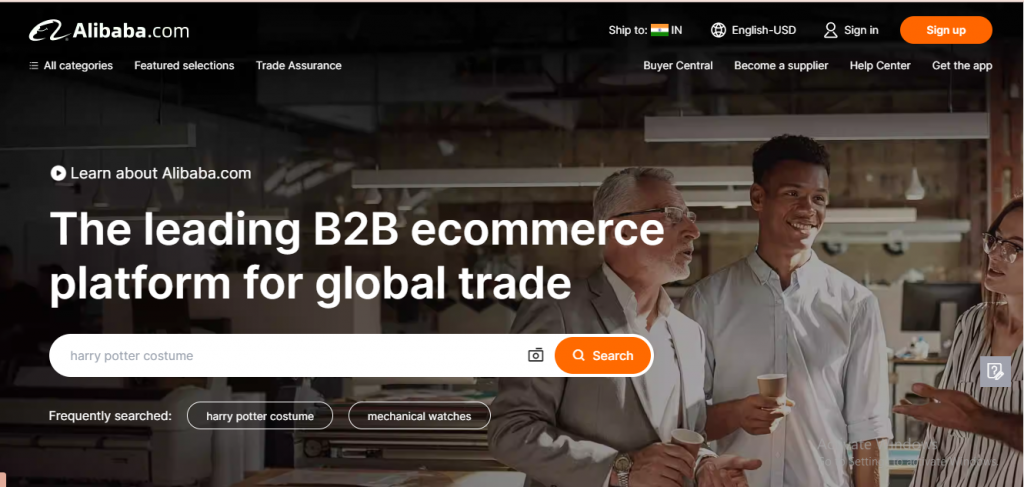
Several factors set the Alibaba ecommerce website apart:
- Intuitive product catalog
- Top-rated and highlighted products Multilingual support
- Product packages
- Direct messaging for business-to-consumer (B2C) communication
- Customized Solutions for Small Businesses
- Educational Resources and Community and Networking Opportunities.
They have a free Free Membership, Gold Supplier Membership and Transaction-based Fees.
Alibaba offers sellers a range of digital marketing tools to help them advertise their goods and get them in front of more people. There are choices for paid ads, special product placements, and more.
3.3. WooCommerce:
WooCommerce is the official eCommerce plugin for websites built on the WordPress platform. This is one of the best b2b ecommerce websites.
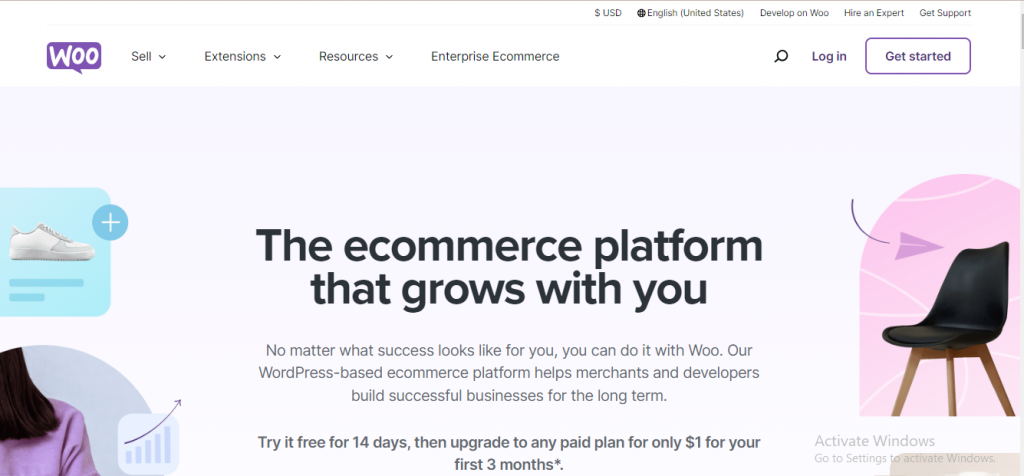
This eCommerce plugin is perfect for merchants of all sizes. There is a vast selection of plugins available. Online shop owners can make use of this tool to customize their stores.
It began in 2011 and is now accessible globally.
WooCommerce comes at no cost, and additional charges for specific plugins may exist.
WooCommerce is a popular choice for eCommerce sites used by clients like Weber, Ghostbed, and AeroPress. Instead of using multiple plugins, B2B merchants can simplify their setup using the WooCommerce B2B plugin. This plugin offers all the necessary features, including hiding prices and products from non-members, providing discounts based on customer groups, and excluding taxes.
3.4. Adobe Commerce:
Adobe Commerce, a B2B Commerce, is a widely used open-source B2B eCommerce website platform that provides numerous integrations and a vast extensions library.
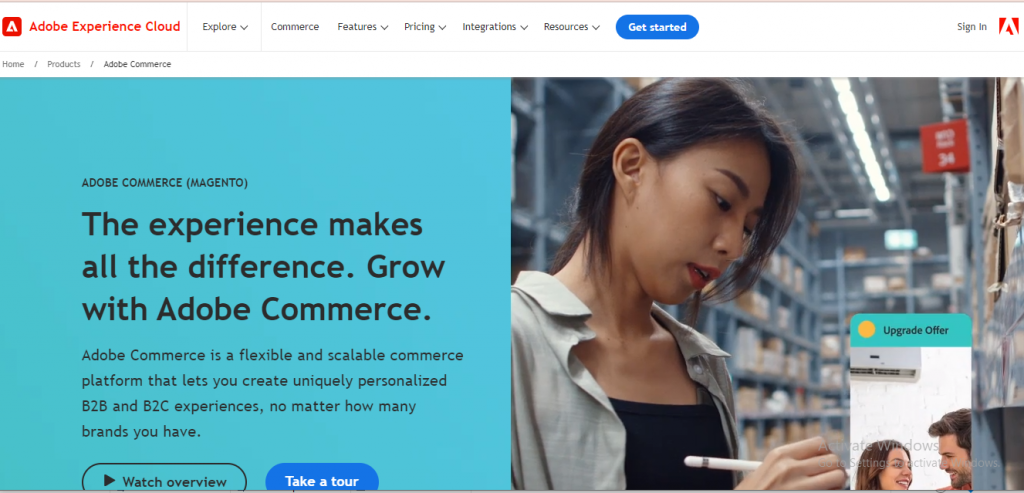
Adobe Commerce offers all the essential features of its B2C commerce platform, along with extra functionalities for B2B sellers who handle multiple brands and partner accounts. One of these features is the ability for B2B buyers to easily place orders with your store by entering SKUs or uploading CSVs. In 2008, this product became available worldwide.
Pricing begins at $3,000. Their customer profile includes many merchants, from small businesses to large corporations like 3M and Procter & Gamble. They have chosen to use Magento B2B Commerce for their needs.
The new Magento 2.2 update allows B2B buyers to quickly send quote requests to merchants and directly from their shopping carts. Merchants can then respond with discounts, price adjustments, and additional product suggestions, all within the platform. It is accessible globally.
3.5. Amazon Business:
Amazon is a widely recognized marketplace that caters to both consumers and businesses. The company provides an extensive selection of items. And prioritizes convenience and easy search ability. Although Amazon is famous worldwide, its B2B platform is less well-known. However, it provides all the necessary features for businesses.
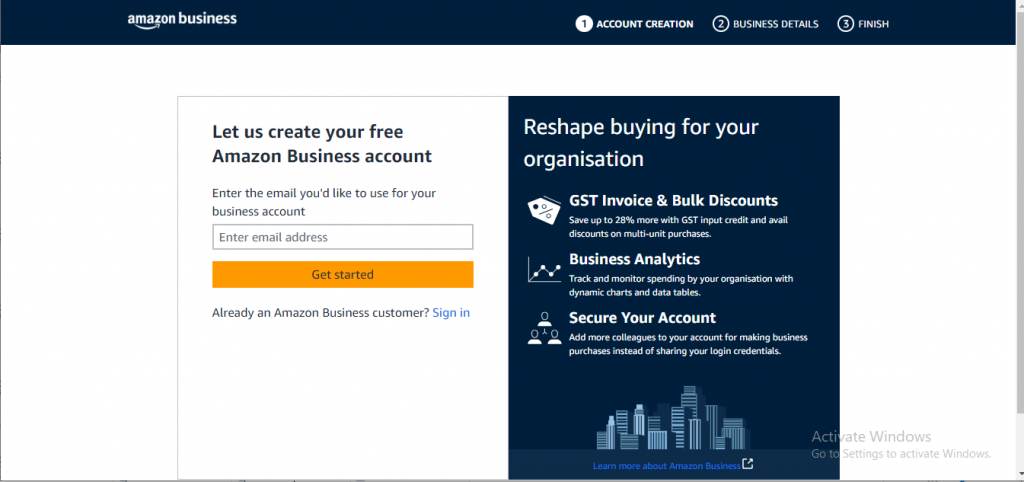
These are a few factors that set the Amazon b2b ecommerce website apart:
- Features for customer chat
- Storing shopping carts
- Efficient filters for improved product organization
- Straightforward refunds
- Various languages
- Sellers provide attractive offers to shoppers.
It was initiated in 2015 and has quickly become the place where businesses go to improve their buying processes and get a wide range of goods and services.
The pricing are of different categories like Free Registration, Business Prime, Tiered Pricing and Quantity Discounts, Business-Only Pricing, etc.
3.6. Opencart:
OpenCart's B2B eCommerce platform is a cost-effective and widely used.
OpenCart offers a range of features, such as built-in SEO, product management, promo codes, and more. Merchants can enhance their store functionality by selecting from a wide variety of over 13,000 modules and themes. It was launched in 2010 and is accessible to sellers globally.
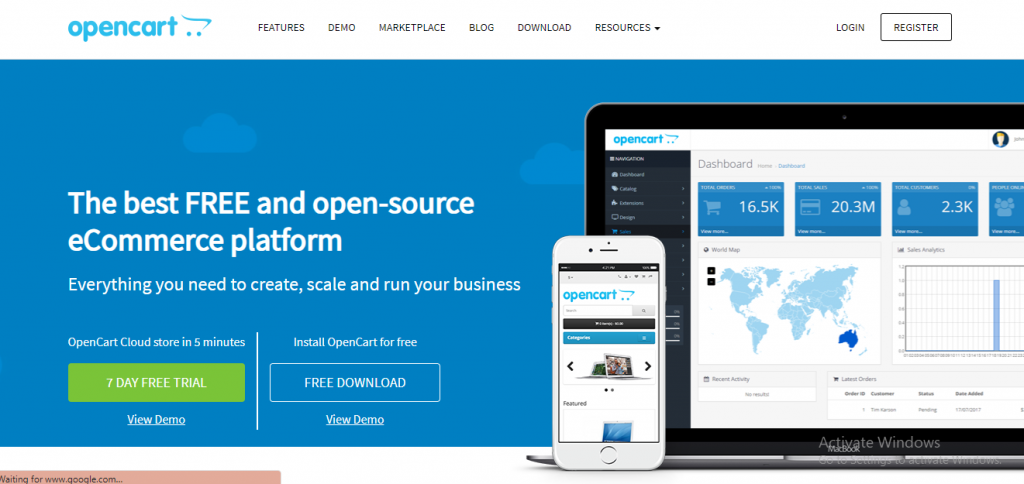
OpenCart is available for free, with no monthly charges. However, remember that certain extensions and themes may come with additional costs.
OpenCart is a popular choice among eCommerce brands, with many customers, including the British Red Cross, Ace, Volvo, and FX Creations.
Updates have been made to OpenCart 3.0, including adding multilingual SEO URLs, improved reporting, and a new admin panel. OpenCart is one of the best b2b ecommerce websites.
4.Conclusion:
In conclusion, these business-to-business (B2B) websites for small businesses make it easy to do business and build strong partnerships. Small companies can improve how they buy things because they have many choices, from Alibaba's huge global market to specialized platforms like Opencart's.
These platforms keep changing with the times, giving small businesses the tools, they need to succeed in the competitive world of business-to-business (B2B) shopping. Small businesses can reach more customers, make good relationships, and be successful in the digital world for a long time by using these custom solutions.





